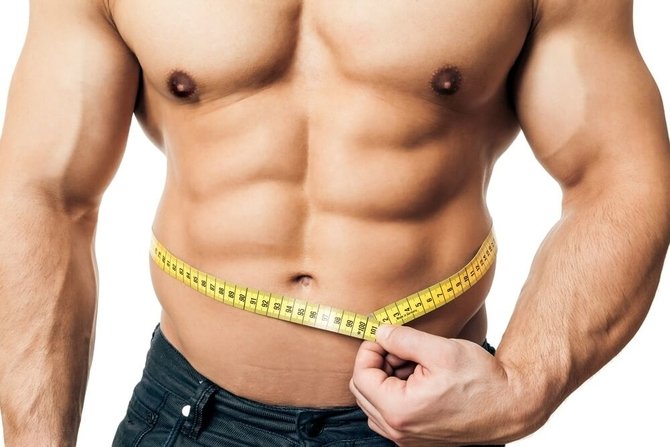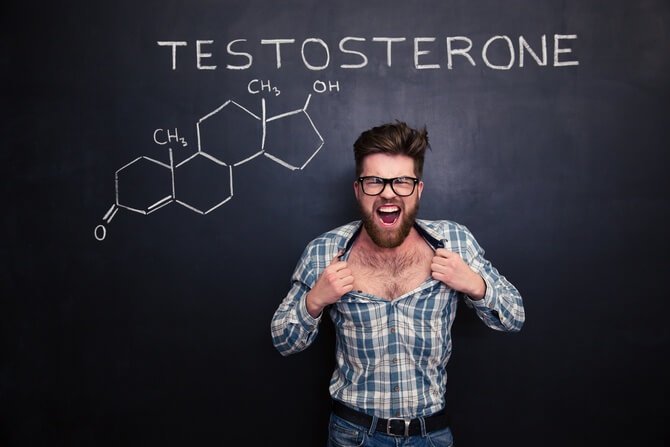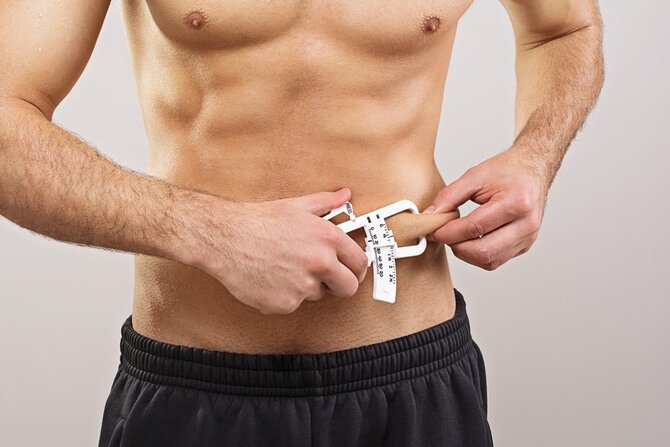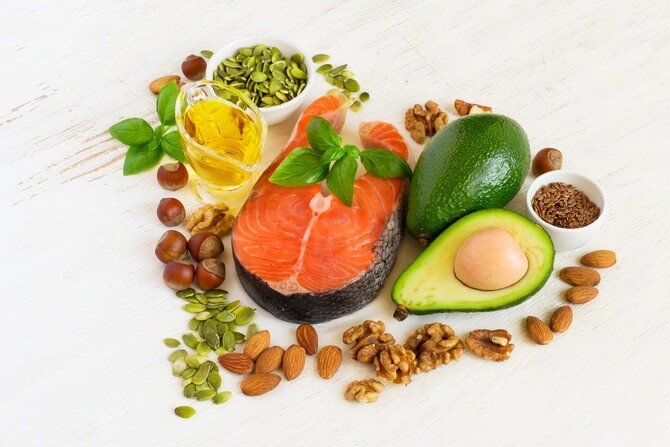How to Increase Testosterone Levels Naturally?
Written by Andrew Brewer. ⚕️Reviewed and fact checked by Dr. Harshi Dhingra.
The hype is actually true; there is a single hormone which is responsible for regulating your muscle mass, sleep, hair growth, sex drive, and energy levels.
This miracle substance is known as testosterone. Incidentally, the supplementation of the hormone for men is a billion dollar industry. Boosting your testosterone levels has so many beneficial effects that it might come across as almost too good to be true.
Unfortunately, it might be true.
Recent studies have shown that testosterone supplements can cause negative side effects. In light of this, testosterone supplements and pharmaceuticals should be a last resort. Before you go for the artificial testosterone enhancement, try increasing your testosterone levels using natural methods.
There are several ways to naturally boost your testosterone level, giving you the testosterone boost you need to achieve the best results.
Key Takeaways
- Testosterone is a hormone responsible for regulating muscle mass, sleep, hair growth, sex drive, and energy levels in both men and women.
- Boosting testosterone levels through natural methods such as exercise, a healthy diet, and stress reduction can have many beneficial effects on the body, while artificial testosterone enhancement through supplements or pharmaceuticals can have negative side effects.
- Testosterone promotes bone and muscle strength, sperm production, sex drive, and mood and energy levels, making individuals bigger, leaner, and stronger.
- Testosterone levels vary from person to person, and low testosterone can cause symptoms such as fatigue, decreased sex drive, and decreased muscle mass.
- It is important to consult with a healthcare professional before attempting to boost testosterone levels through natural methods or supplements.
Hormones 101
Hormones in the human body are chemicals that act as messengers. When they are released into the bloodstream by the glands, they transmit signals with regard to how every part of the body is reacting and what other hormones to release.
The biggest example of this process is the human reproductive hormones. Namely, the two primary reproductive hormones are estrogen and- you guessed it right- testosterone. When a teenager’s body starts to produce large amounts of estrogen or testosterone, he/she starts to exhibit the features of a male or female, triggering the ability to reproduce.
Testosterone and estrogen are mainly produced in glands which are located in the reproductive system, namely testicles in men and the ovaries in women. Even though testosterone and estrogen are primarily responsible for sexual development, they are responsible for so much more: Bones, brain development, and other hormonal systems depend on healthy levels of testosterone and estrogen to function.
Testosterone, in particular, is essential to both men and women in terms of muscle and mood stability. Let’s take a look at testosterone and what it does in the body.
What is Testosterone? What does it do?
Testosterone is the hormone which is primarily responsible for sexual reproduction in men. This is why testosterone is known as the ‘male hormone’. The more testosterone you produce, the more masculine and virile you will be.
For instance, when boys enter into puberty, they begin to develop deeper voices, sebaceous acne, an increased production in body hair, and enormous leaps in height and muscle composition.
This is because testosterone promotes:
- Bone and muscle strength: When the testosterone levels are increased in the body, bone and muscle cells are stimulated into a growth phase. The body, in this phase, produces more bone, making the existing bone structure denser and longer. In individual muscles, the muscle fibers become more tightly coiled with cells, which will allow for much greater contractile strength. Testosterone makes you bigger and stronger.
- Sperm production: The production of testosterone also stimulates the growth and maturation of sperm cells. Studies have shown that low testosterone directly correlates with low sperm count.
- Sex drive: Because testosterone is the male sex hormone, it is easy to understand that testosterone plays a huge role in your sex drive. The presence of the hormone releases other chemicals in your brain that stimulate the nerve endings in the sexual organs as well as trigger arousal in the brain.
- Mood and energy levels: Testosterone is known to play a role in the functioning of the brain. Aside from stimulating sexual arousal, it has been known to trigger mood swings and affect energy levels. For instance, men with high levels of testosterone report having nearly limitless energy levels and getting good sleep at night.
It is important for us to mention that despite being known as the ‘male hormone’, testosterone isn’t exclusive to men. Girls and women produce testosterone in their ovaries as well, but it is in minute amounts as compared to men.
This small amount of testosterone helps women develop skeletal muscle as well as enhances the sex drive. The problem with testosterone in women is that the greater the amount, the less effective their estrogen is. Women with higher levels of testosterone for their gender often complain of body hair growth, an unfeminine decrease in body fat, and aggravated sebaceous acne.
So testosterone makes you bigger, leaner, stronger, and increases your libido.
By now you must be asking yourself, “Where do we sign up to get more of that?” Because of the awesome properties of testosterone discussed above, scientists have long experimented with ways of adding extra testosterone into the body in the form of pharmaceuticals.
The most famous of these pharmaceuticals are Anabolic Steroids.
Anabolic steroids are synthetic hormones that act like testosterone in the body. Once injected, these steroids can greatly enhance your physical performance, strength, and energy levels.
Professional and amateur athletes who injected themselves with high doses of anabolic steroids in order to get ahead in their game became famous in the past few decades.
Football, and many other sports that require great physical strength like running and cycling, baseball, boxing, and bodybuilding have reportedly come to limelight over anabolic steroids.
Not only is the use of these performance enhancers considered cheating, they can have adverse side effects and cause permanent bodily damage, including a drastic drop in natural testosterone levels. Let’s take a look at low testosterone, or Low T and it’s symptoms.
Why do Men Get Low Testosterone?
Before we get into low testosterone levels we should mention that testosterone levels vary (sometimes wildly) from person to person. For instance, one testosterone level can be considered normal for one man and low for another.
So how do we decide whether a level is low or not?
Scientifically speaking, testosterone levels are defined in terms of ‘free’ testosterone and ‘bound’ testosterone. Simply put, bound testosterone is attached to another protein molecule and rendered inert. Free testosterone, on the other hand, is floating in the blood available for use. Free testosterone is the level we are most concerned with for the purposes of this article.
The measurement most commonly used in this regard is nano- grams of testosterone per deciliter of blood (ng/dL).
According to the National Institute of Health, the normal range of testosterone in a healthy male is 270 to 1070 ng/dL total testosterone with an average of about 679 ng/dL. As far as free testosterone is concerned, the normal ranges are 9 to 30 ng/dL free testosterone with an average of about 2 to 3% of total testosterone levels. As you can see this is a huge range!
When determining low testosterone, the best method would be a blood test done over time to see if the levels lower, or considering the side effects. If any of the symptoms of low testosterone sound familiar to you, this may be the clearest indicator that you could use a boost in testosterone level.
There are several reasons why an individual can experience low testosterone levels, but the most common of them is that it is part of the aging process. Like all good things, youth and vitality must end. As we age, our testosterone levels naturally taper off and we begin to see the effects of low testosterone levels on our lives.
Other reasons for low testosterone include high body fat composition, starvation, and abuse of anabolic steroids. The symptoms of low levels of testosterone include:
- Low sex drive
- Erectile dysfunction
- Muscle and strength loss
- Low sperm count
- Sleep problems
- Increase in body fat
- Depression
- Mental fogginess
These side effects of low testosterone are not only uncomfortable they also drastically lower your quality of life. And it seems as if Low T in men is rapidly on the rise.
Men have longer life expectancies than they ever have before. As men live longer and longer lives, they find themselves feeling the effects of low testosterone more profoundly, creating a growing need for testosterone replacement. It is important to get their testosterone levels elevated in order to start living their life to the fullest once again!
6 Steps How to Increase Testosterone Levels Naturally
So you want to boost your testosterone levels without the use of anabolic steroids? Well, you’re in luck! Not only is it possible, but extremely simple as well!
It requires some work. That said, modifying your diet and exercise you can have your testosterone levels shooting through the roof in no time!
To increase testosterone naturally and effectively, you need to optimize nutrition, shed body fat, work out regularly, and ensure that you get the right minerals and vitamins. All of these elements work together to create hormonal balance in the body. This will allow your testosterone levels to rise naturally, helping you to achieve your goals!
Step 1: Get Rid of Body Fat
It is not a surprise that people who carry around a lot of extra body fat have lower testosterone than usual. This can happen for a number of reasons, main reason being overweight individuals experience low testosterone because of increased presence of insulin.
When you consume large amounts of sugar (which is the catalyst for weight gain), your body produces insulin to bind with the sugar and convert it to fat. Insulin is a hormone like testosterone: the endocrine system is working overtime to produce insulin.
There are several other ways that body fat can affect testosterone. Being overweight often leads to symptoms like sleep apnea and insomnia, which is problematic because a healthy night’s sleep is essential to hormone production. Body fat also leads to heightened levels of estrogenic compounds, which diminish testosterone level as well. Basically, excess body fat is the ultimate testosterone killer.
So how can you overcome this testosterone deficiency, due to body fat? The simplest way is to lose body fat. Unfortunately, this is easier said than done, but there is an upside to working up a sweat: the combination of exercise and diet can blast the fat off your bones and boost your testosterone levels as well.
So let’s lay out the changes in nutrition and fitness that are going to get your testosterone levels sky high.
Step 2: Start Taking Natural Supplements & Vitamins
Let’s talk about supplementation first.
Are there any supplements or vitamins you can add to your diet that will help speed up the testosterone level?
We have already discussed testosterone supplements in the form of anabolic steroids that add artificial testosterone to your bloodstream, causing a ‘quick fix’ effect. Yes, you can experience tremendous growth, but along with that comes serious adverse side effects and long-term damage.
There is another form of ‘quick fix’ supplement on the market today that you may have heard of: natural homeopathic herb products that claim to naturally boost your body’s ability to produce its own testosterone, eliminating the need for steroids. There are thousands of products in this niche market but the most popular testosterone booster supplement is known as ZMA.
ZMA (so named for its primary blend of zinc and magnesium) claims to use recent scientific research to develop natural testosterone production. There have been several studies published in the past that correlate low testosterone production with low levels of zinc and magnesium in men. The idea behind supplements like ZMA is that by adding them to your daily nutritional profile, you will naturally boost your testosterone production.
These supplements usually also contain things like sleeping aids, and other muscle enhancing compounds. Sounds great right? Unfortunately these supplements can’t deliver what they promise.
While there is nothing wrong with adding zinc and magnesium to your daily multivitamin diet in order to ensure optimal testosterone production, there is no scientific evidence to suggest that ZMA can drastically affect testosterone production. The same can be said about other herbal compounds which are marketed to boost testosterone (like tribulus terrestris).
So why should you avoid them? They may not be one hundred percent effective, but they can’t possibly hurt, right? Here is the scary part: some of these supplements claim to be herbal but have anabolic steroid compounds hidden inside their ‘proprietary blend’.
These fraudulent supplements may work better but you are still left with the same bad side effects of anabolic steroids. Instead of putting money into a testosterone boosting supplements that may or may not work, just make sure you have a good multivitamin that supports your increased physical activity and healthy fat loss. This will ensure that your body will be ready to create larger amounts of testosterone.
Here are two compounds to look for when choosing a multivitamin:
- Zinc: This mineral is essential for testosterone production, which is why so many of the ‘T Boosters’ we want you to avoid generally include it. It is found naturally in foods like raw milk, cheese, kefir, and beans. Zinc is available in pill form, but make sure not to consume more than 40mg of zinc supplement daily because it can cause stomach discomfort.
Zinc has recently become a large concern for the medical community because as many as 45% of the 60 years and older adult population in the US is getting less zinc than they need in their daily diet. This happens largely due to the overcooking of food. Food that is thoroughly cooked loses enormous amounts of its nutrients, because it breaks down the proteins and starches in food which leads to the nutrients being broken down and rendered inert.
- Vitamin D: This steroid hormone has been linked to the development of sperm cells as well as rising levels of testosterone. Unfortunately like zinc, Vitamin D deficiency is alarmingly common throughout the population. Without appropriate levels of Vitamin D you run the risk of chronic disease and depression. So how do you get more vitamin D? Get out in the sun! The body produces vitamin D in response to direct exposure to sunlight. Despite all of the negative press that exposure to sunlight has received lately you actually need some sun to stay healthy. It also helps you boost your testosterone level in the body. We can’t think of a better reason to hit the beach!
Step 3: Start Eating Right
If you ask the average American what kind of food they should consume in order to naturally boost testosterone, a shocking number of them would insist that protein is the best way to add testosterone naturally. They could not be more wrong! This kind of misinformation is widespread across America. And it is one of the main reasons why many adults do not have balanced hormone levels.
Here is the simple truth: by refocusing your diet on healthy fats, complex carbs, and lean protein, you can not only lose weight and be healthier but drastically boost your testosterone as well.
Here are some tips to help you ditch the unhealthy food habits:
- Cut the processed sugar: Refined, processed sugar not only leads to obesity, it has been proven to lower your testosterone levels. This is because when processed sugar is consumed it causes an enormous spike of sugar to enter into your bloodstream. The body then releases insulin to process all of the extra sugar. Increased insulin levels lead to a drop in free testosterone in the blood. In order to avoid this drop in testosterone from happening, we suggest cutting all excess sugar from your diet. The daily recommended intake of sugar is 3 to 5 teaspoons for a grown adult whereas the average adult is consuming 12 teaspoons or more! The problem is that there are ‘hidden sugars’ in nearly everything we eat.
In order to cut extra sugar, avoid processed foods. Food makers add sugar to increase the flavor of their foods. It can be found in everything; bread, ketchup, and even frozen vegetables are packed with sugar to make them taste better. Instead of buying packaged foods, we recommend that you reach for fresh fruits, veggies, and meats and cook them yourself. This is more time consuming, but your testosterone levels (and your waist line) will thank you!
- Healthy Fats: Yes, there are healthy fats. Even the saturated ones. The diet industry has long demonized all fats as the source of all chronic illness. In reality, the human body requires fat to be healthy. The problem doesn’t lie in fats; rather it lies in the amount of fat you consume. Mono and polyunsaturated fats like the fat found in nuts and avocado are essential and heart healthy. These foods should be a part of any healthy diet, but saturated fat is vital as well. Saturated fats contain fatty acids essential for building chemical testosterone.
Healthy fats can be found in foods like egg yolks, grass fed meats and dairy, olive and coconut oil. We recommend that you find ways to add these foods to your daily diet as soon as possible. Don’t worry if you aren’t the most experienced cook. There are tons of recipes on the internet that can help you make delicious food rich in healthy fat easy and fast! The key is to get started and practice. You will be making super testosterone boosting meals in no time.
Now that you know to skip the sugar and toss in more healthy fats, it is time to discuss how exercise can boost your testosterone levels and help you sleep better, have more energy, and feel amazing!
Step 4: Start Exercising
This section is the simplest one to wrap your head around: Exercise builds muscle. Muscle burns fat and triggers the production of more testosterone. Testosterone increases energy levels, giving you more energy for exercise!
This snowball effect wouldn’t be possible without exercise to make it happen. Studies have shown that individuals who work out three to five times a week are more likely to have high testosterone levels. This is because the reduction of body fat allows for the elevation of testosterone levels. Exercise is also known to reduce stress, which plays a greater role in the production of testosterone than previously thought.
Stress from work and other life events have made American’s lives more stressful than anything else. With that, stress reliefs have gone from a niche business to being one of the largest markets in the world because people work longer hours and have more pressing schedule than ever. Unfortunately, the science shows that stress can worsen chronic illness and can make you gain weight. But along with that, it reduces testosterone levels as well.
In response to stress, the body releases the hormone cortisol. In small doses, this hormone can be beneficial but large amounts of the hormone can do undue damage to your health. Stress hormones are linked to blood pressure, blood clots, obesity, depression, anxiety and hundreds of other ailments, but most importantly cortisol reduces the production of testosterone. Luckily just a little bit of exercise every day can drastically reduce your stress levels. The American Medical Association is of the view that just 15 minutes of exercise daily can reduce stress levels.
But what kinds of exercise will boost your testosterone levels? The truth is that there are some exercises that you must avoid. Because testosterone is an anabolic hormone, the trick is to train using resistance as opposed to cardio. Not it isn’t important to do cardio; quite the opposite. Cardiovascular activity is essential to good health, as it lowers blood pressure and releases beneficial hormones that produce testosterone as well. But prolonged cardiovascular exercise can actually decrease your overall muscle mass and lead to a dip in testosterone.
Anaerobic exercise is commonly referred to as resistance training, or weight lifting. These exercises provide resistance for your muscles, stressing them enough to stimulate growth in the muscle.
The muscle grows in response to stress because your body wants to be strong enough to do the work you want to do with ease, so by always lifting weight you are constantly tricking your body into getting stronger.
Here are some of the best resistance workout methods to build muscle and boost testosterone:
Step 5: Mix With HIIT (High Intensity Interval Training)
High intensity interval training (also known as HIIT) is gaining ground in the fitness community as the best way to reduce fat and boost testosterone.
This method of exercise employs short bursts of intense exercise followed by brief rest periods. Studies of the method have shown that HIIT can have the same benefit as traditional weight lifting in less than a third of the time.
HIIT is also more effective at burning fat because it requires immediate energy sources like the sugars and fatty acids in the blood in order to maintain such explosive bursts of energy.
Here is an example of a HIIT workout:
- Warm up to an elevated heart rate.
- Exercise as hard as you can for thirty seconds.
- Recover (without stopping to rest completely) with moderate exercise for ninety seconds.
- Repeat seven to eight times with each exercise.
You can do this with virtually any exercise, including cardio! Sprinting and other cardio exercises are more anaerobic than aerobic in a high intensity interval training session because of the amount of muscle you need to use in the attempt of gaining incredible speed in such short times.
No matter what exercise you choose for your HIIT workout, make sure that you are utilizing the proper equipment and safety procedures to avoid injury.
Step 6: Do Some Traditional Resistance Training
Do you like pumping iron? Good! You will need to do a bunch in order to boost your testosterone.
Traditional weight training is responsible for the bulked up bodies of muscle men everywhere. You may not want to look as bulky as them, but if you want their testosterone levels you have to hit the gym almost regularly. This can be a long and arduous process, but there are fitness coaches and personal trainers who can absolutely help you accomplish your goals. This is especially helpful if you are unfamiliar with resistance training.
If you want to save some money on the trainer and try hitting the gym on your own, think ‘SLOW’ when you perform your exercises. When lifting weight, the slower and more controlled you can perform the rep, the more benefit your muscle will get as far as testosterone production.
The slower the exercise is performed, the more challenging for the muscle it becomes!
Conclusion
There is no best way how to increase testosterone levels naturally, there the only right way that requires some work. That said, with modifying your diet and exercise you can have your testosterone levels shooting through the roof in no time!
FAQ
-
What are some natural ways to increase testosterone levels?
Some natural ways to increase testosterone levels include maintaining a healthy diet, exercising regularly, getting enough sleep, reducing stress, and taking certain supplements.
-
Can diet affect testosterone levels?
Yes, diet can affect testosterone levels. A balanced diet with healthy fats, proteins, and carbohydrates can help increase testosterone levels. Additionally, avoiding processed foods, sugary drinks, and excessive alcohol consumption can help maintain healthy testosterone levels.
-
Can exercise increase testosterone levels?
Yes, regular exercise can help increase testosterone levels. Strength training, in particular, has increased testosterone levels in both men and women.
-
Can stress affect testosterone levels?
Yes, stress can affect testosterone levels. High levels of stress can cause a decrease in testosterone levels, which can have negative effects on mood, sex drive, and overall health.
-
What supplements can help increase testosterone levels?
Some supplements that may help increase testosterone levels include D-Aspartic acid, Zinc, Vitamin D, and Fenugreek. However, talking to a healthcare provider before taking supplements is important to ensure safety and effectiveness.




